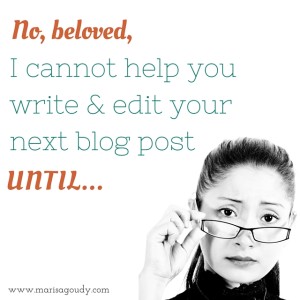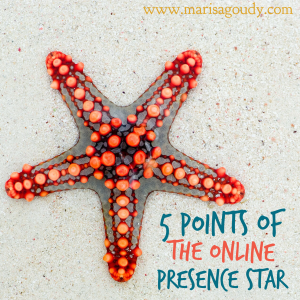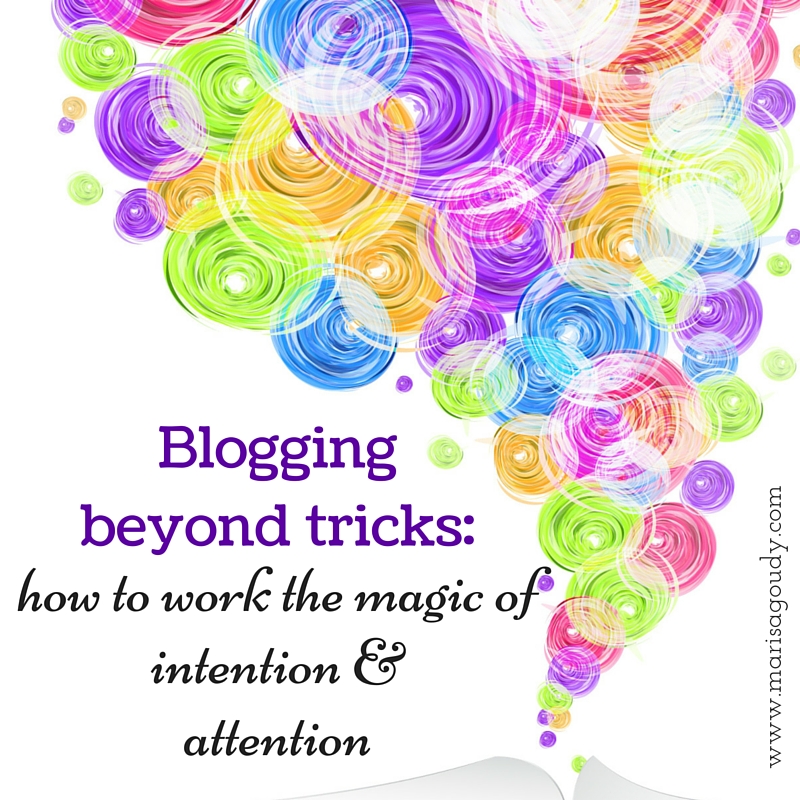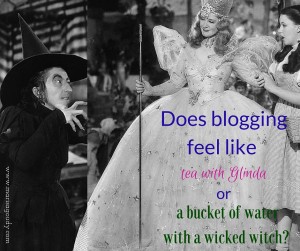
BLOG
How do private practice therapists take the creative risk and keep a blog?
"Creativity is the ability to take a risk. To actually put yourself on the line and risk ridicule, being pilloried, criticized, whatever. But... you must take that risk."
Sting - and specifically his Ted talk about how he reconnected with his creativity - inspired me to think about the risks we take as writers, as thinkers, as content creators, and as publishers.
Does creativity feel like a risk to you?
How do private practice therapists take the creative risk of keeping a blog?
Creating and sharing haven’t always felt risky for me.
Think of yourself as a kid. Think of what Picasso said: "Every child is an artist. The problem is how to remain an artist once we grow up."
Art was life, not risk.
As I grow older, as my circles of influence grow a little wider, and as more people are likely to read my words, I finally feel the tingle of “this is risky” when I hit publish.
Blogging for business can be your best creative outlet
As full as life is - and I know you can relate to this - creative time can be scarce. You're in two nonstop races when you run a family and you run a business - or at least it can feel that way.
In my case, if there's any “me” time at all, it’s a choice between meditate, exercise, or do some creative writing.
Since I tend to choose whatever offers maximum overall benefit and can be done during nap time, I choose meditation. That means I’m in pretty lousy shape and it means my beloved fiction projects are languishing.
It also means my untapped creative writing juices get poured into my blogging and content marketing. Because I need to build a business to support this family, that’s the perfect mix right now.
If writing for the business is the creative outlet, then blogging can feel risky too
[tweetthis]If creativity=risk and biz blogging is a #creative practice, does that make #writing risky?[/tweetthis]
Thinking aloud, trying out a theory in a public space, taking on issues that people would rather not examine, publishing it online for all the world to see… all of this can feel dangerous.
Even though we’re all getting used to living out loud when we're on online, it can start to feel dicey when you consider your professional persona.
This is especially true if you feel particuarly cautious about sharing personal stories - either because you’re a naturally private person or because you’re a therapist in private practice.
When you start to build an audience and you sincerely hope those people will invest in what you do, “just write and hit publish” starts to feel kinda scary.
And there’s a particular kind of risk inherent to publishing a blog post for your business:
You can’t always be sure that you’re writing about an idea that speaks to the concerns of your ideal readers and clients. What if the story you need to tell right now springs from your own psyche and your own needs?
Discern your own stories from the Greater Story your business & your readers need you to tell
[tweetthis]Some stories are private. Some need to get tweeted like crazy. Can you tell the difference?[/tweetthis]
Experience. Listening. Mindfulness.
And trust.
Trust that you’ve created a reciprocal relationship with you readers that allows you to hear their needs above your own internal noise.
Trust that your readers are willing to journey with you into the uncharted territory of your inner world. (Within reason… this is a professional, not a confessional blog!)
There’s no simple formula. Again, it’s a creative act - because yes, blogging for your business can be a deeply creative process. There are risks and you may not always get it right, but that whole “nothing ventured, nothing gained” idea certainly applies in this case.
[tweetthis]Shh! I'm writing. #Blogging for my business is my creative outlet.[/tweetthis]
Is writing the “right” story easier or harder for therapists?
So, having decided to write about other people instead of myself, a further irony is that sometimes you reveal more about yourself than you'd ever intended. - Sting at TED Vancouver in 2014
Is writing the "right" story harder for therapists?
Storytelling is an intensely personal act.
That is why it is such an effective way to reach and engage people. You do risk revealing yourself when you tell a story - even if you never use a personal pronoun.
The way a narrator takes a chance and puts herself on the line? That is exactly what gets people to pay attention.
You might think that discerning whether a story is acceptably universal or too rooted in personal concerns would be easier for therapists. After all, your work is about witnessing and holding space for others’ emotions.
You know what occupies many hearts and minds. And you've generally been taught to keep yourSELF out the equation.
For example, when someone reveals a concern about infidelity or chronic anxiety or the stress of parenting, you know it’s a topic that you could explore on your blog (ethically and without identifying details, of course). When you see patterns emerge in your practice, you've discover a collective problem that will interest many of your readers.
But what if you’re drawn to discuss a topic because it’s rippling through your own life or because it colors your past?
Then, telling the story - even without an "I" - can feel risky. You're not so sure you're telling the "right" story and distinguishing between the personal and universal.
Through the writing process - which reveals countless hidden truths - you may realize that it's hard to publish a post and maintain your professional posture when you’re bent under the strain of your own experiences.
So what do you do?
When your own "stuff" wants to come into your blog and you're not totally sure what is yours, what is important for the community, and what is just plain old whiny nonsense, in addition to practicing mindfulness and trust, practice gentleness.
Be gentle with your story, with your need to tell it, with your audience. After all, they put themselves in your care when they gather round to hear what you have to say.
And get a second set of eyes to review the post before you hit publish.
Often, a non-therapist with distance from your situation will be the best reader because they offer the gift of impartiality. They can tell you what resonates in the heart of the common reader, what feels like psychobabble buzz, and what feels too autobiographical.
I happen to be a non-therapist who loves to play the role of your ideal reader. As your writing coach, I can help you figure out which stories to tell and support you as your find just the right words to tell them.
No, beloved, I cannot help you write and edit your next blog post UNTIL…
Sovereign Standard, Issue 30 You’ve got an idea for a really important blog post for your business’s website - brilliant!
You’ve got an idea for a really important blog post for your business’s website - brilliant!
Tell me about it. Tell me why you need to write it. Tell me the story that will glimmer with insight. Tell me what you’re asking your reader to do when she reaches the end.
What I want the writer to do? you ask.
Yes. You know, the call to action. It’s the logical, necessary conclusion to every business blog post. It’s anything from join my email list, to get my free report, to book a session.
Oh, you say, I’m not sure…
Well, how about you send them to your services page? In a pinch you can always say “learn more about what I do” and invite readers to delve more deeply into your website that way.
Um… I’d rather not. My services page is kind of outdated. I keep meaning to get back to it.
 You’re starting to shut down. You’re kind of wishing you’d never asked me - your friend the writing coach - to look at something you wrote.
You’re starting to shut down. You’re kind of wishing you’d never asked me - your friend the writing coach - to look at something you wrote.
This is when I get a certain look in my eye. I really, really want to give you a hug, but I see you're pulling back. I know that feeling. The last thing I want to do is discourage your writing, but I have to be honest.
I am about to deliver some news you probably don’t really want to hear, but that you and I both know you need to hear.
This blog post isn’t where you need to put your energy, friend.
We’re wasting our efforts on this one precious article if you’re still struggling with pangs of website shame.
Tough love: 5 things your online presence needs BEFORE you invest time, energy, and writing coaching dollars in your blog
 Whether or not you want to be a blogging superstar, regardless of whether you buy into the quest for any kind of superstardom at all, you need to be the star of your own online show if you're going to make your business work.
Whether or not you want to be a blogging superstar, regardless of whether you buy into the quest for any kind of superstardom at all, you need to be the star of your own online show if you're going to make your business work.
And so, before I start helping you promote yourself through blogging and content marketing, I want to be sure that you've shined up all the points on your online presence star.
[tweetthis]5 things I tell my friends to do before they write a #blog post[/tweetthis]
- You've got overall clarity on what your website is meant to do for your business. Your website is a key member of your sales force. Yes, even if you run a itty bitty business or a private practice you actually do have a sales force.It might just a force of two: you at networking events introducing your work and passing out cards and your website with the "book now" button. Make sure it's clear that your site has a job and be the boss who makes it do the work! (Note: your site does need to be more than an online booking platform - it welcomes prospects with a clear, comprehensive overview of who you are, what you offer, and what problems you solve, too!)
- Your About page shines with your Sovereign Story. Beyond sharing some key elements of your biography, the About page expresses your passion and your mission. It inspires people say “I want to have coffee with this person and find out how she can help me. Heck, I want to hire her!”
- Your Services page describes what you do and answers fundamental questions about your work. The Services page on your site is a resource for you too. When you’re new to business or you’re making changes in your practice, you can refer to your website as your organization's “manual.” You already figured out the length and cost of a session and you posted it for the world to see - no need to second guess yourself when someone asks your what you do and what you charge!
- You’re continuing your relationship with your reader by building a list. You get an extra gold star when you tell me you have an email opt in offer (like a video series or a report) that incentivizes sign ups, but simply asking people to join your community and entrust you with their email address is a great start.
- You’re consistently strengthening your relationship with your online community. Communicating with your list. Posting useful content on social media from a variety of sources. Starting conversations with colleagues, potential clients, and the people who inspire you… All of this helps you develop an online platform and build and audience so there’s someone there to read this awesome blog post that is blossoming within you.
Yes, but there are stories that must be told
What, what’s that you say? The blog post you need to write is burning you up inside?
It’s about your clients, your business, your relationship with how you serve the world and nothing makes sense until you get it out there. It’s one of those immediate stories that has to be birthed now, huh?
And you say that putting your concerns about list building over this really big idea just crushes your soul.
I get that.
Your friend the writing coach takes a deep breath... (that's me, remember).
I can’t help myself - I too am driven by story, art, connection, and the need to express that idea that will not be denied. I understand how you are dedicated to so much more than "doing the internet right.”
Alright. Just this once. Just ONE post. Show it to me. I'll make suggestions and edits and ask you to clarify a few things, ok? Expect to get it back by Tuesday. If it's that important we'll be the this one post will inform all those other web presence building activities I talk about above.
But, once this is published, do you promise that our next project involves a comprehensive review of your site so you can put website shame to bed forever? Or, if you're just not sure where to begin, we'll have a Message Development Session. Promise?
How shiny is your online presence star?
Help me understand where you are right now... Do you feel like you have all five points covered and you're ready for the blogging adventure?
If you're still polishing up your online star, which points feel bright and shiny and which could use some help?
Please let me know in the comments so I can craft some content that will help you set all five points aglow!
Blogging beyond tricks: how to work the magic of intention and attention
Sovereign Standard, Issue 29  There are so many blogging gurus and “easy peasy” blogging plans out there. I’ve never claimed to be a blog expert and I will never tell you that writing is an easy process that you can hack through.
There are so many blogging gurus and “easy peasy” blogging plans out there. I’ve never claimed to be a blog expert and I will never tell you that writing is an easy process that you can hack through.
Instead, I call myself a writing coach and I promise to guide you and walk beside you through what can only be called a dedicated practice of writing for business.
 Yes, there are specific strategies that will make your blogging more effective - and will shorten the writing time. You can even shorten the editing process when you bring it to someone like me!
Yes, there are specific strategies that will make your blogging more effective - and will shorten the writing time. You can even shorten the editing process when you bring it to someone like me!
And yes, you might say there are blogging “tricks” that help you create posts that are really special - not because you’re pulling a fast one but because you’re working your own kind of magic.
You don’t need blogging tricks, but a little magic is always helpful
Something you should know about me: I believe in magic.
 Mostly, I believe in magic because I have no interest in living in a "what you see is what you get" world. I believe in the magic of stories, symbols from nature, and the depths of dream.
Mostly, I believe in magic because I have no interest in living in a "what you see is what you get" world. I believe in the magic of stories, symbols from nature, and the depths of dream.
I also believe that magic flows when you focus your intention and attention. That’s exactly how words and sentences flow too.
You don’t need tricks to make your writing practice work for you and your business. You need a strong intention and you need to give your writing the attention it deserves.
[tweetthis]Magic flows when you focus your intention and attention. Same is true for your #writing.[/tweetthis]
Before you write a word: begin with intention
When you sit down to create content for your blog, what motivates you?
- You’re trying to keep up with those “epic content dudes” who tell you that modern business is about publish or perish.
- You’re fulfilling a promise to your coach or some sort of accountability group.
- A general case of the “shoulds.” You’re not even sure why you’re blogging, but you figure you better get started because you’re already so far behind.
- You wish to explore a long percolating idea or a sudden flash of insight. Taking these ideas beyond scribbled notes and Word docs and into the public arena deepens the process and opens new perspectives.
- You’re writing out of love and service, trusting that the people who need to hear your message will offer your words the attention they deserve.
Because this is a post about a writing practice guided by personal intention and attention, there’s no single right answer.
There are, however, a few very wrong answers – if your motivation to write is based purely on obligation or fear.
Your “why” is the source of your writing magic
When you don’t know why you’re writing something - when you’re unclear of your intention - it’s nearly impossible to connect with the reader.
When you don’t connect to your reader, you’ll never achieve the goal of the post or article.
Your goal may be simple: “get more business.” But no one will get past the first few lines of a blog post if it’s clear the writer is only in it for the sale. The reader also won’t get very far if it seems the writer is just publishing because someone told her she “should.”
So why are you really writing?
Call me a romantic. Call me an idealist. Heck, call me a writer! I believe the only writing that ultimately succeeds is composed in a spirit of love and service.
Consider the success of direct mail copywriters and lousy popular novelists. Clearly you can write successfully when inspired by the love of money and in service to the beast of fame. I’m not here to judge those folks. They prove that passion and dedication will get you what you want.
But I think you’re a little bit more like me than you are like the guy with the perfect marketing formula.
You care deeply about your business and what you offer your clients. You love the people who buy from you – and not just because you adore the ka-ching of your PayPal notification tone.
Thing is, you don’t necessarily love writing for your business. Put it another way - you haven’t fallen in love with the writing process yet because you don’t understand the why of your attraction.
[tweetthis]The only #writing that truly connects is composed in a spirit of love and service.[/tweetthis]
Your writing “why” has a name and a face
A lot of brilliant people say you must write for yourself first.
“Close the door. Write with no one looking over your shoulder. Don’t try to figure out what other people want to hear from you; figure out what you have to say. It’s the one and only thing you have to offer.”
Barbara Kingsolver is exactly right.
Hear a “but…” statement coming?
Presumably this great novelist is talking about fiction, not writing a blog post that helps bring in business.
Kingsolver would be spot on if we were still in the heady days of personal blogs when finding your voice was so central and “if you write it, they will come” was still semi-true.
Now, many take selfies to tell personal stories. Creative entrepreneurs and therapists use blogs to further their business, art, and practice in a more systematic, strategic way.
You can tell your personal stories just about anywhere. Your business blog exists to serve the reader. (Your stories are important, but they're the vehicles that carry your message, not your writing's fundamental raison d'etre.)
Your reader is your “why.” To satisfy her needs and curiosity… that must be your intention every time you publish a post.
The blog is the place to engage the reader with stories that illuminate her story. The blog sustains the reader with solutions to problems that keep her up at night.
Ok, your blog is still about you - in a way
There’s one part of blogging that’s about you: determining what sort of content you can comfortably, sustainably create. After all, creating content is a marathon, not a sprint.
This goes back to intention… You’re intentionally building a business around your gifts, your passions, your desire to solve the problems of a community of people you love.
Logically, any writing you do to support this work will feel doable - even if the writing itself still takes a lot of effort.
 But, if every writing session is torture and you feel like a house fell on your sister rather than you're flying in an orb of fairy dust, there is something wrong.
But, if every writing session is torture and you feel like a house fell on your sister rather than you're flying in an orb of fairy dust, there is something wrong.
You need to figure yourself into the writing process too and make adjustments to your writing routine, topic choice, and delivery style. If you don’t feel like a good witch when you’re writing, change your approach.
When your writing process feels more like a Dark Art rather than a lovely session with Glinda and Dorothy, let’s set up a complimentary 15 minute chat and share a long distance cup of tea so I can help you identify at least one adjustment you can make right away.
Once your intention is clear, you know where to direct your attention
Writing can be an emotional entanglement of sorts. Everyone has a different relationship with their words, but there’s one common factor in every writer-writing relationship -- attention.
An attention-starved writing practice is absolutely nothing but a dusty notebook inscribed with regret.
You love your business, you love the people you have been called to serve.
And so we return to:
You write online content out of a spirit of love and service, trusting that the people who need to hear your message will offer your words the attention they deserve.
When you show your love to your business and your reader-clients, they repay your intentional attention with their own (incredibly valuable) attention.
Blogging = Love. So how do you fall in love with the writing process so you can share the greater love?
Because I want to wave my magic wand and take the pain out of blogging for you, I am tempted to tell you that you can click your heels together with intention and pay simply attention to what the Wizard says.
There’s a great chance that getting clear on your "why" and sitting down to DO the writing is all you need. But that does you a great disservice if you’re someone who feels like she can’t cast a writing spell without some help.
You have other options. You can create video. You can start a podcast. You can create visual experiences for your beloved community.
You can explore the different kinds of writing support that are out there and make a decision based on your skills and resources.
And you and I can talk about your writing-for-business intentions and how they mix - or don’t! - with your reality as an entrepreneur or clinician whose attention is already pulled in so many directions.
Send me a note and we’ll schedule 15 minutes to sip tea and talk about how you can find the magic in your own message.
Four Common Traits Lethal to Rock Stars and Blog Writers
You know the songs that matter. They have a way of illuminating your past. At the same time, they shed new light on your present and make you look forward to a brighter future. (Articles and blog posts can do this too, of course.)
I’m still unfurling my muscles after a few days stuck in the back of a fully packed minivan. We’ve just completed the summer pilgrimage up to the Canadian Maritimes. Members of my family have been making this trip since my grandparents immigrated to Boston in 1949.
Such trips are a chance to go back in time - even as you’re unmistakably immersed in the present and the future. Countless stories about the people you've loved and lost are told over the noise of the newest generation.
Between the reminiscing, reciting every nursery rhyme I knew to soothe the toddler, and fending off the five year-old’s requests for yet another ice cream cone, there actually were a few quiet moments in the van.
What U2 can teach you about presenting content to people who care
As I watched the Prince Edward Island farmland stretch to ocean, I caught a U2 song I vaguely remembered.
It wasn’t blurred by time - U2 songs from twenty-five years ago are indelibly etched in my mind. This was a new song from that “oops” album that the band pushed at everyone last year.
U2 “gifted” the album to everyone with an iTunes account. Songs of Innocence wasn’t addressed to the faithful fans or even rock music listeners. It was launched at 500 million people, many of whom didn’t know the difference between U2’s lead singer and some guy who used to be married to Cher.
The chosen audience for this music - everyone - simply didn’t care.
Ego, generosity, self-promotion, and fear are a lethal combo - for rock stars and for writers
If U2's “oops” appeared on your radar screen, you likely recall the backlash.
No one even had time to notice whether the music was any good because they were so angry that it appeared unbidden on their iPhones. (And if anyone from Apple dares to take up one more blessed megabyte with content we don’t actually want, there will be rioting. Or snarky tweets. Whichever.)
Shortly after the album’s release, Bono apologized for their tactics and tried to explain why they did it:
A drop of megalomania, a twitch of generosity, a dash of self promotion – and deep fear that these songs that we poured our life into over the last few years mightn’t be heard.
Why should you, a content creator and small business blogger, care about a U2 album that will only endure as a reminder that free music isn’t free if you have to pay the fines of public ridicule?
Like it or not, you likely blog and write online content for the same reasons U2 paired up with Apple. Though each element that Bono describes can be good in itself, when mixed together you find yourself in a fine mess.
- Ego (“megalomania” is a term best reserved for rock stars and CEOs, so let's scale it back): When you write merely to hear your own voice and to rack up shares and likes, you’re going to lose track of your online raison d’etre - the reader.
- Generosity: When you give away all your insights you’ll bankrupt yourself and compromise the quality of what you offer to your paying clients.
- Self-Promotion: You blog in order to build an online platform, but, if you’re writing in order to be seen rather than to deliver value, you’ll end up alienating your audience.
- Fear: Any venture motivated by fear is bound to fail eventually. Blog posts written in the spirit of “if I don’t get something out on time my readership will forget all about me!” will never be as successful as those grounded in wisdom and anchored in trust that your message is worth listening to.
What happens when you write a blog post for just anyone
This particular track I heard? “Song For Someone.” The irony was kinda crushing...
When U2 chose to toss their album on everyone’s digital doorstep like a piece of junk mail, they lost track of the special someones who stuck by them even after a decade (more?) of cringeworthy releases.
In order to make a song connect and endure, it has to be sung to someone who wants to listen.
If you want a piece of writing to connect and endure, it has to be addressed to someone who is receptive to the message.
“Someone” doesn’t care about what you have to say. A carefully considered ideal reader who has the problems that your goods and services aim to solve… she’s the one you need to write for (or sing to!).
Everything you bublish needs to be a song for someone in particular
“Song For Someone” will never be anyone’s “With Or Without You.”
Maybe it’s because the song was tinged with that ego, misdirected generosity, self-promo, and fear. Maybe it’s because the band lost sight of what really mattered in their bid to stay relevant and be as cool as Apple.
Maybe it’s because Bono has been more focused on saving the world than he has on music. There are plenty who say that’s a fine thing. And if his mistake makes you a better blogger, just put on Joshua Tree and get writing!
Want to learn more about how to write for your special someone? Consider joining the Sovereign Writers Circle.




